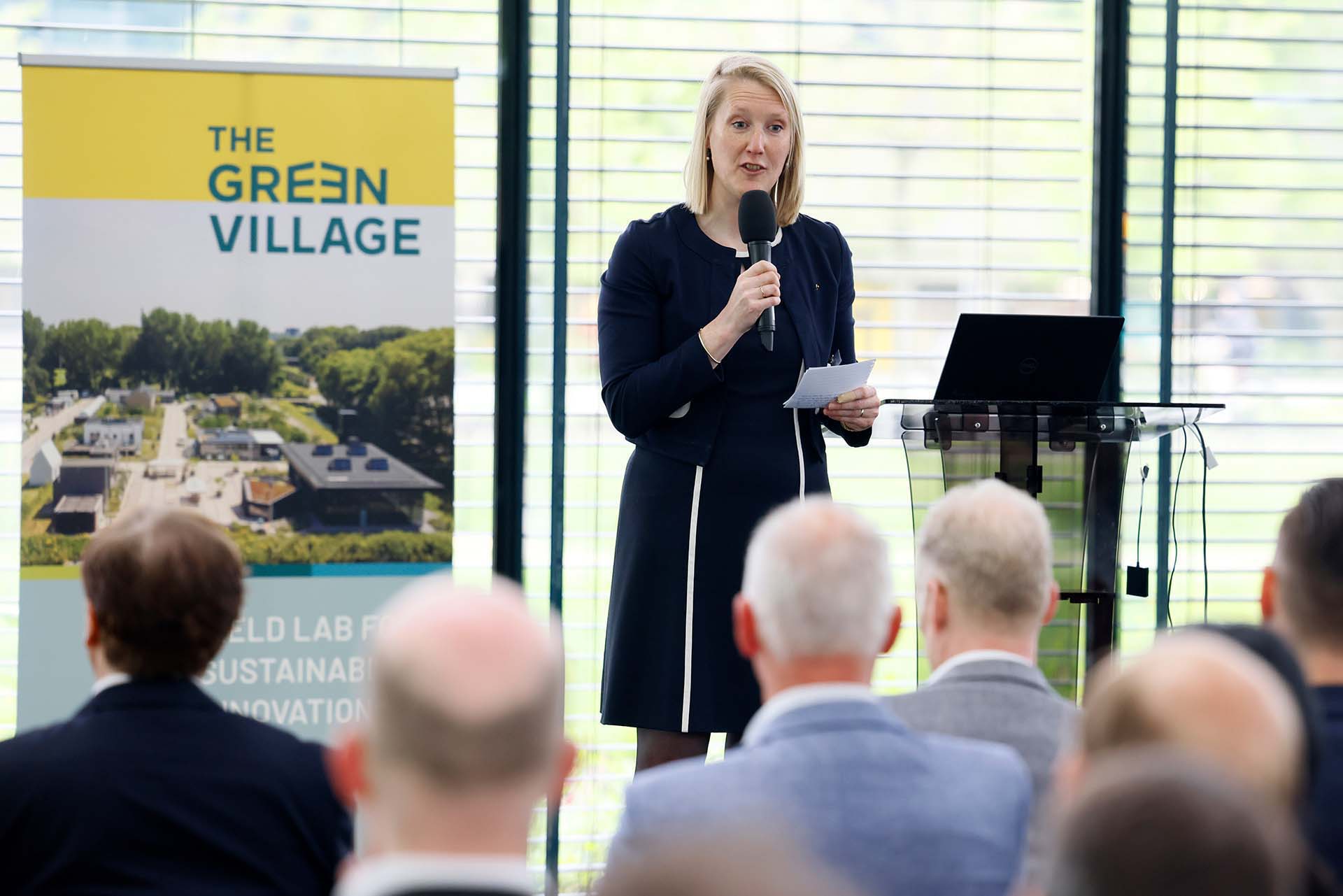TU Delft and TenneT present solutions for sustainable and stable energy systems during joined symposium
Electrical power grids worldwide are becoming overloaded. This makes it essential to further develop solutions to ensure the stability of our increasingly sustainable energy system. TU Delft is proud to work at the forefront of renewing energy systems, together with industry partners like grid operator TenneT. During a symposium on the topic of net congestion and innovation, experts from the industry and academia presented their joined efforts in this field.
Grid on overload
As is the case in most other countries, the electrical power grid in the Netherlands is strained and at the risk of becoming hopelessly overloaded. This makes our power system vulnerable and creates many difficulties in realising the energy transition. In other words, the time has come to develop new, sometimes even radical, solutions to ensure the stability of our grid, now and in the future. During a symposium on May 10th 2023, experts from both TU Delft and TenneT, as well as TU/e and DNV, joined in presenting solutions to energy system challenges.
The symposium was organised by TU Delft associate professor José Rueda Torres, expert in the field of resilient and sustainable energy systems. One of the innovations that José works on is developing High Voltage Direct Current networks. These are so called “power superhighways” and use direct current for electric power transmission, which is much more energy-efficient compared to common alternating current power systems. José Rueda also presented his findings on power electronic converter dominated systems, together with Mario Ndreko from TenneT. Marjan Popov (TU Delft) and Wilhelm Winter (TenneT) presented recent research achievements that TU Delft has obtained concerning the Interoperability of Control and Protection in future HVDC grids, and TenneT’s plans for future Multi-terminal HVDC grids.
Intelligent energy systems
The application of artificial intelligence (AI) is developing very rapidly these days, and this also applies to the field of power grids. Jochen Cremer from TU Delft and Matija Naglič from TenneT spoke on the subject of AI to monitor and mitigate operational threats of power grids. Furthermore, Pedro Vergara from TU Delft and Koen Kok from TU/e shared their efforts concerning intelligent and self-organizing power systems.
Control Room of the Future
However, extra digital elements in the energy grid pose a specific threat: configuration errors or cyber attacks that could possible disrupt large parts of or energy net. Alex Stefanov, director of the Control Room of the Future, presented his work on developing the tools to deal with these new challenges. Alex presented his findings and view together with Bas Kruimer, an energy expert from DNV – the third and final presentation that was a joint effort between an industry partner and the TU Delft.
The energy transition might become the biggest engineering challenge humanity has faced as of yet. Such a challenge can only be tackled with academia and industry working in unison, bringing together radical new ideas and solutions with the necessary insight in the practical challenges.


